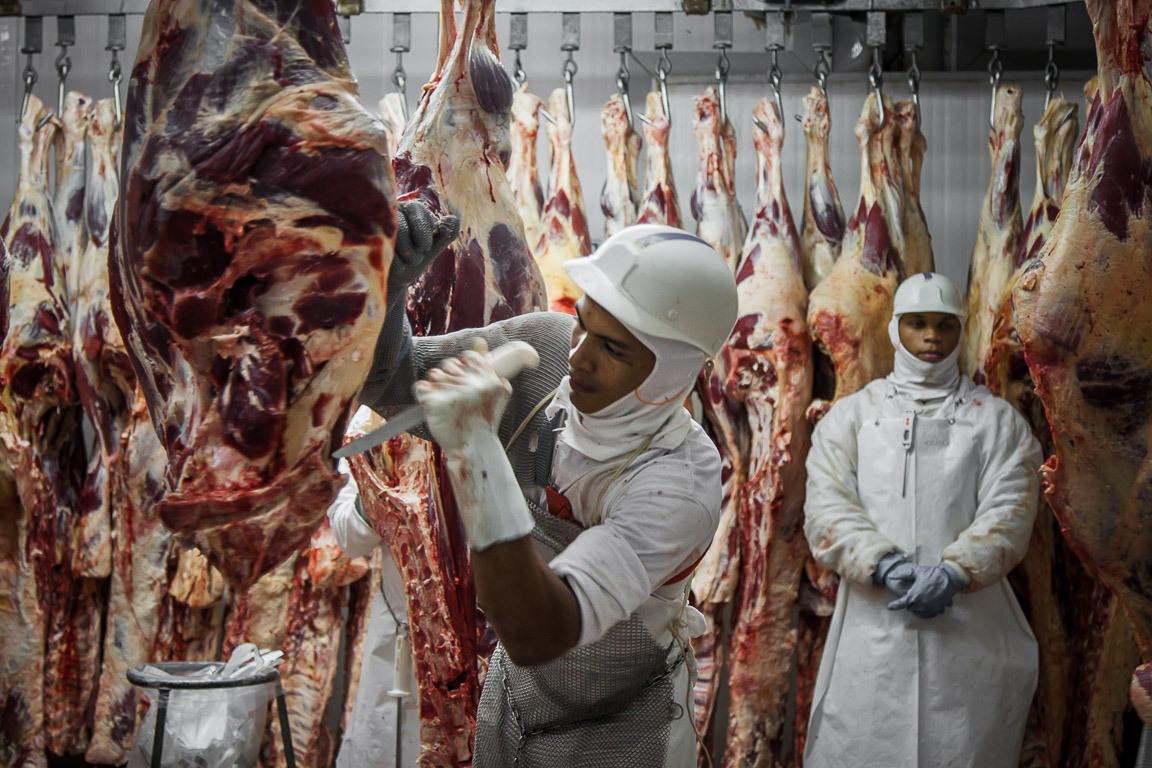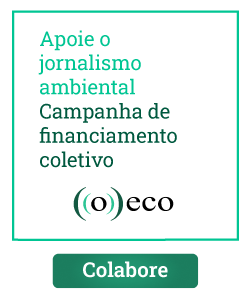In December 2015, after four years of negotiations, leaders of 195 nations decided to unite to slow down global warming. They signed the Paris Agreement, in which they committed to take measures that would contain the global temperature rise to 2° Celsius (3.6° Fahrenheit) above pre-industrial levels. Each nation defined its own targets for meeting this goal. The European Union prepared itself to reduce greenhouse gas emissions by 40%, while Brazil aimed for a 43% reduction by 2030. To get there, the country must stop illegal deforestation while restoring 12 million hectares (30 million acres) of forest that has already been cut down.
But while President Jair Bolsonaro has threatened to leave the Paris Agreement, and Brazil recorded its greatest amount of deforestation in 10 years in the Amazon in 2019, Europe has begun to take action, using the financial market as one of its main lines of leverage. “The financial market plays a key role in reaching these objectives, as large amounts of private capital will have to be directed toward sustainable investments,” it says in its action plan on financing sustainable growth.
There’s an increasingly common understanding that no efforts to contain climate change will be sufficient if those who have the money keep funding the sectors that emit huge volumes of CO2. One such sector is the production of beef in the Amazon, financed by large European institutions like Deutsche Bank, HSBC, Santander and Credit Suisse. In 2018, cattle ranching was responsible for 19% of Brazil’s CO2 emissions. Accounting for deforestation in the Amazon, where two-thirds of the forest cleared is to open up pastureland, the sector becomes responsible for up to 45% of Brazil’s greenhouse gas emissions.
In March this year, the European Comission released its EU Taxonomy as an orientation tool for investors making the transition to a low-carbon economy. The guide classifies economic sectors according to their environmental impact and creates a standard measure for comparing the sustainability of each one. “By classifying the companies, the Taxonomy will allow investors to know how much a certain company is contributing to the mitigation and adaptation of climate change,” says Natalie Unterstell, public administrator and director at Talanoa, a Brazilian think tank that produces climate risk mitigation studies and projects. “It is a sophisticated tool that goes far beyond what any other country has done before. It is absolutely powerful.”
Beginning in December 2021, European financial institutions and large corporations will be required to include this green indicator when they release information about where they are investing. Since 2018, companies have been obliged to include in their annual reports information on their conduct with regard to environmental protection, social responsibility, diversity on their administrative boards, respect for human rights, and anti-corruption measures.
For Brazil, the European focus on those damaging the environment could have practical consequences: the free trade agreement between the EU and the South American trade bloc Mercosul (Mercosur), debated for more than two decades and finally signed in 2019, could go under because of the Bolsonaro administration’s failure to combat deforestation. An entire chapter of the treaty focuses on sustainable development, obliging all parties to comply with the Paris climate agreement and prohibiting them from weakening environmental protections, repealing environmental laws, or failing repeatedly to enforce them. There’s already a precedent that Europe means business: the text for a similar pact between the EU and Vietnam was only approved by the EU assembly after the Vietnamese government committed to strengthening workers’ rights in the country.
A land with laws but no penalties
In Brazil, the commitment to socially and environmentally correct business and investments is still lacking. “Brazil is behind the rest of the world. Unfortunately, we are not creating rules here,” says Unterstell, who, before founding Talanoa, led Brazil’s most ambitious study on scenarios and alternatives for adaptation to climate change. Known as Brasil 2040, it was released in 2015 by the office of then-President Dilma Rousseff.
Since 2014, companies trading on the Brazilian stock market are required to include ESG (environmental, social and corporate governance) information in their annual reports to the Securities and Exchange Commission, and which helps investors in their decision-making. In practice, however, the data are vague.
In 2019, for example, JBS, the world’s biggest meatpacker, dedicated just two paragraphs from 650 pages to say that climate change could “have adverse material effect on operational results, financial situation and liquidity.” The document fails to relate the main activity of the company, which had 32 meatpackers in the Amazon in 2017, with the risk of deforestation and its consequences in controlling global temperatures. The only time the problem is mentioned is in a chapter titled “Legal actions,” when it references the Beef TAC (Terms of Adjustment of Conduct), an agreement made with the Federal Prosecutor’s Office in which JBS commits to not purchase cattle from illegally deforested areas. The company notes that “there is no chance of [financial] losses” as result of the TAC. Federal prosecutor Daniel Azeredo said the instrument has not been sufficient to keep the large meatpackers from slaughtering cattle reared in deforested areas.
The Central Bank of Brazil (BC), which regulates the national financial system, also published resolutions requiring banks and financial institutions to consider the environmental aspects of their operations. The oldest, from 2008, requires that farm owners in the Amazon supply documentation proving legal environmental status of their land in order to receive loans.
But the rule didn’t catch on. According to the BC press office, no financial institutions have ever been sanctioned for not complying with the resolution. The only time a bank was charged with financing deforestation was in 2016, when the federal environmental regulator, IBAMA, fined Santander 47.5 million reais ($8.8 million) for financing grain farming in an environmentally protected region. The land in questioned was under embargo, a fact that was ignored when the bank analyzed the credit application. The Federal Prosecutor’s Office charged the bank another 7.3 million ($1.3 million) for environmental damages. Santander appealed; three years later, it still hasn’t paid a cent. IBAMA lists 19 banks that have been fined for environmental illegalities, but Santander is the only one written up for financing farming on embargoed land.
Aside from demanding clean environmental credentials from those seeking credit, the central bank determined in 2014 that financial institutions must consider social and environmental risks before approving financing, reaffirming this stance in 2017. In 2018, the rule also came into effect for financial investments by closed-capital complementary pension funds. Again, enforcement of the rules has been lacking. According to an ((o))eco analysis based on a Global Witness study, the three meatpackers that buy the most cattle from the Amazon received $18 billion in investments between 2013 and 2019; $8 billion came from Brazilian financial institutions, even though JBS, Marfrig and Minerva — the top three meatpackers — were ranked by conservation organization Imazon as the first, fifth and 10th most likely companies to buy cattle from deforested land.
“All the banks we identified that finance these companies have social and environmental policies, so in theory, they shouldn’t be investing in meatpackers that are exposed to deforestation,” says Chris Moye, a forest investigator and co-author of the Global Witness report “Money to Burn.”
U.S. stance ‘not as strong’ as Europe’s
Even in Europe, where the most rigid rules are implemented, investors keep funding the Brazilian beef industry. A fourth of the money coming from overseas to keep JBS, Marfrig and Minerva going comes from European nations.
The No. 2 investors, after Brazilians, are from North America, which further complicates the transition to a low-carbon economy. U.S. President Donald Trump has begun the process to withdraw his country from the Paris Agreement, and the signal this sends to investors is crystal clear: pension fund administrators, for example, “must not too readily treat ESG factors as economically relevant” in their investment decision-making, but rather “always put first the economic interests” of their plan, according to a Department of Labor bulletin.
“The United States is not taking as strong a stance as Europe,” said Cole Martin, an analyst at Fitch Solutions. “North American companies aren’t under great pressure to increase their sustainability credentials or transparency in this area. Those who are doing this are doing it because they want to.”
Unterstell is not as pessimistic about North American investors. She said changes are increasingly being driven by the financial market itself, independent of the Trump administration’s inertia. “It is less a question of state or regulation and more a market posture,” she said. “What we have been seeing since 2013 are the big players like Bloomberg and BlackRock working with climate risk and paying a lot of attention to green titles. They are the ones creating standards and rules.”
Self-regulation falling short the world over
Concerns about the economy of an overheated world have manifested in numerous initiatives within the financial market itself to stimulate environmentally responsible investments, mostly during the past two decades. One of the pioneers is the Carbon Disclosure Project, a nonprofit founded in 2000 that has become the most complete environmental database of self-declared data in the world.
The most recent initiative on the market is the Task Force on Climate-Related Financial Disclosures, created in 2015 by the Financial Stability Board, an organization that monitors the entire planet’s financial system. There are more than a thousand member companies on the task force, but only 20 from Brazil and none from the beef sector. Japan is strongly represented, with 265 companies; the country is home to six of the international companies that finance JBS, Marfrig and Minerva, pumping more than half a billion dollars into their business.
The most important green-investment agreement was signed in 2006 at the New York Stock Exchange and known as the PRI initiative, or “Principles for Responsible Investment.” Its more than 3,000 signatories committed to incorporating environmental, social and corporate governance questions in their investment decision-making, even though some of them finance the meatpackers operating in the Amazon.
BlackRock is an emblematic case: in January of this year, its CEO and asset manager, Larry Fink, released a letter announcing a corporate decision to “place sustainability at the heart of our investment strategy.” But until last year, BlackRock was one of the 15 biggest investors globally in Brazil’s beef production chain in the Amazon. Between 2013 and 2019, it carried out 36 transactions for the purchase of debt securities and shares in the top three meatpackers, amounting to a combined $236 million.
A domestic example is Bradesco, the Brazilian bank that prominently touts its participation in the PRI and several other voluntary environmental agreements. Yet the company remains the second-largest Brazilian financer of meatpackers operating in the Amazon, according to the analysis carried out by ((o))eco based on Global Witness data.
In Brazil, 63 institutions signed the PRI. The list includes no beef companies.
Entities linked to the financial market have also sought to associate themselves with the discourse around noble purposes and green investments, but in practice there are still many discrepancies. The Brazilian Association of Financial and Capital Market Institutions (ANBIMA) created a category of investment funds called “Sustainability and Governance,” but of the 2,610 active share funds in Brazil, only 22 are of this type.
Two of those funds hold shares in at least one of the three meatpackers that most work in the Amazon, according to the investment portfolios seen in April. Another six of these funds, which should value good governance practices, including transparency, don’t disclose their investment portfolios to the public. The Securities and Exchange Commission says it cannot be held responsible for monitoring these funds; ANBIMA did not respond to a request for confirmation that the products really finance only environmentally committed companies.
The Association of Capital Market Investors (AMEC) published a code in 2016 listing the main principles and obligations of companies that manage investments. One of its “final determining factors in investment decision-making” is ESG criteria.
The Brazilian National Association of Pension Funds (ABRAPP) released a self-regulation manual and a “Practical Guide for the Integration of ESG in Manager’s Evaluation.” The Brazilian Federation of Banks (FEBRABAN) created a Guide to Climate Risk Management, which lists cattle farming as one of the investments with the highest risk.
But a 2018 study by ANBIMA shows that concern over sustainability is still far from making it onto the spreadsheets of financial managers. Only 110 of the 520 managers questioned responded to the survey. While the majority of respondents (85%) agreed that they considered the potential impact of environmental, social and governance issues in their decision-making, only 11% said they have teams dedicated to analysis of these issues. Of the companies that responded, 20% said they use a database specifically for this purpose and 21% said they have a responsible investment policy. Despite low adherence, the study reveals a lack of interest in improving these methods: 67% of the money managers said they have no goals or objectives for integrating these issues into their risk analysis.
Consumer pressure increasingly effective
The ANBIMA study shows that despite the proliferation of guides, manuals and recommendations, the actions of companies that buy and sell beef produced in the Amazon continue to be overlooked as ESG liabilities.
“Adherence to agreements or ‘green’ initiatives is a common strategy in the business sector, but in Brazil it has become a way of delaying or avoiding the imposition of official legislation on the topic,” said Paulo Barreto, a senior Imazon researcher who has followed the negotiations involving the beef industry for years.
In practice, the results are negligible, he added: “If there are no deadlines connected to goals, performance and clear sanctions, there is little opportunity for moving forward.”
The ineffectiveness of regulatory efforts shows that interest in addressing deforestation will have to come from investors themselves — and their decisions are influenced by two keywords: risk and profit. This is where the consumer’s role comes in, especially in putting pressure on the beef industry. Companies like JBS interact directly with the public because their brands are displayed on supermarket shelves. “These companies are at risk for consumer pushback,” said Martin from Fitch Solutions. He added deforestation will be a growing problem for meatpackers in the Amazon.
“The government could also change rules, create taxes on beef according to environmental damage, or approve new legislation on animal well-being, which would increase company costs and reduce profit,” he said. “It seems to me that this is what will catch the attention of investors.”
A case in point is the fire crisis that ravaged the Amazon last year, focusing the attention of the whole planet on Brazil. While the 2019 fires brought about an unprecedented wave of solidarity for the fate of the rainforest, the fact remains that 11 of the last 20 years have seen greater destruction of the Amazon than 2019, according to data from INPE, the Brazilian space agency.
“But if you look up ‘Amazon Rainforest’ on Google Trends, you will see a flat line leading up from 2004 and in 2019 you see a boom,” Martin said. “It received a great deal of attention from the media, with the EU refusing to ratify the agreement with Mercosul. The market risks are growing.”
Counterpoint: the corporate responses
Brazilian Central Bank (read entire document here):
The Central Bank informs that it is up to the institution itself to supervise the implementation of environmental regulations. In the case of rural credit, all operations are registered in the Operations System of Rural Credit and of Proagro (SICOR), which has criteria that prevents an operation from being given if it is not in accordance with certain parameters like registry in the CAO and duplicate operations in the same area. Still, the BC monitors the actions of financial institutions and monitors the geodesic coordinates of the financed areas. If there are irregularities, aside from interrupting incentives and subsidies related to the rural credit, sanctions can be applied according to Law 13.506/2017 [which deals with penalties for those not adhering to BC rules] and regulated by the Circular number 3.857/2017 [which deals with the administrative process paths for the sanctions], as well as communication to the Federal Prosecutor’s Office if there are indications of a crime. With regard to social and environmental risk analyses, the BC affirms that it carries out inspections and monitoring to evaluate the risks assumed by the entities it supervises.
Bradesco, Brazilian bank (read entire document here):
Bradesco affirms that it evaluates environmental and social risks before the concession of credit through public information and data provided by clients. In concession of rural credit within the Amazonia biome, in addition to the technical requirements specified by law, Bradesco requires the presentation of a technical project and contracts companies that carry out on-site audits. The result of this analysis is a social and environmental rating that is considered in the credit deliberation process. The bank highlights that it has a multidisciplinary technical team dedicated exclusively to social and environmental risk analyses.
FEBRABAN, Brazilian Federation of Banks (read entire document here):
FEBRABAN informs that the depth of the social and environmental risk evaluations carried out by the banks is determined by the relevance and proportionality of the operation to the financial institutions. In other words, an operation that represents a risk of social and environmental damage that is strongly represented in the credit portfolio will be the object of detailed evaluation. According to the entity, the banks generally have departments and teams dedicated to the management of social and environmental risk. FEBRABAN affirms that the environmental topic is a growing and global concern among banks, insurance companies, investors, companies, consumers and regulators.
Santander, Spanish bank
Santander clarifies that it has acted and continues to act according to applicable regulation and adopts the best social and environmental practices. For this reason, the institution presented an administrative defense to IBAMA, which has not yet been considered. With regard to the Global Witness report, the Bank adds that it carries out, on a yearly basis, the re-evaluation of its portfolio of corporate clients according to social and environmental criteria, taking into account their supplier chains. One of the facts observed in the case of the companies mentioned in the Amazon Watch report, was compliance with the agreements signed with the Federal Prosecutor’s Office and Greenpeace to guarantee the origin of animals bought in the Amazon region.
*Translated by Maya Johnson and published in english by Mongabay.
Leia também

TAC da Carne no Pará: MPF diz que ninguém está livre do desmatamento
Passados 10 anos do início dos acordos com os frigoríficos, nova rodada de auditorias aponta menos irregularidades, mas ainda há brechas para gado de desmatamento chegar ao mercado →

Os portões do desmatamento
Levantamento mostra que pouco mais de 100 frigoríficos fazem 90% do abate de gado na Amazônia, comprando das áreas onde a floresta diminui →

Labirinto de papéis e falta de transparência ocultam investimento em desmatadores
Enquanto poupadores individuais não têm ideia de onde seu dinheiro é aplicado, grandes financiadores camuflam participação em empresas que estimulam derrubadas na Amazônia →










